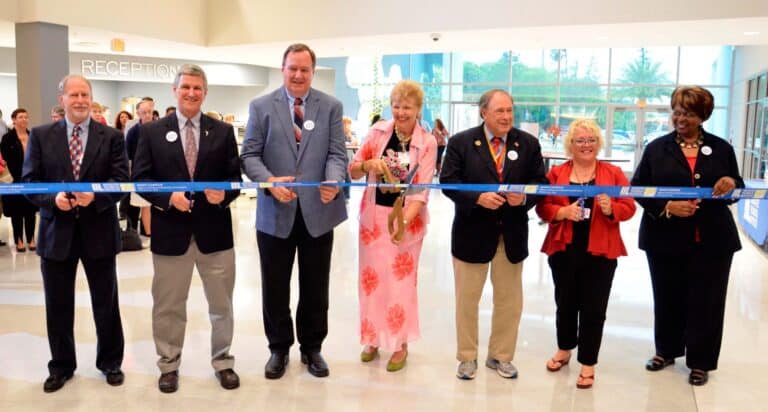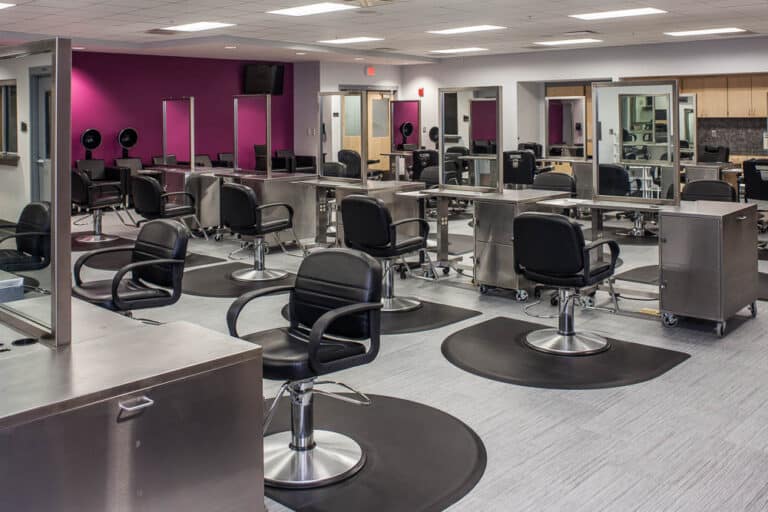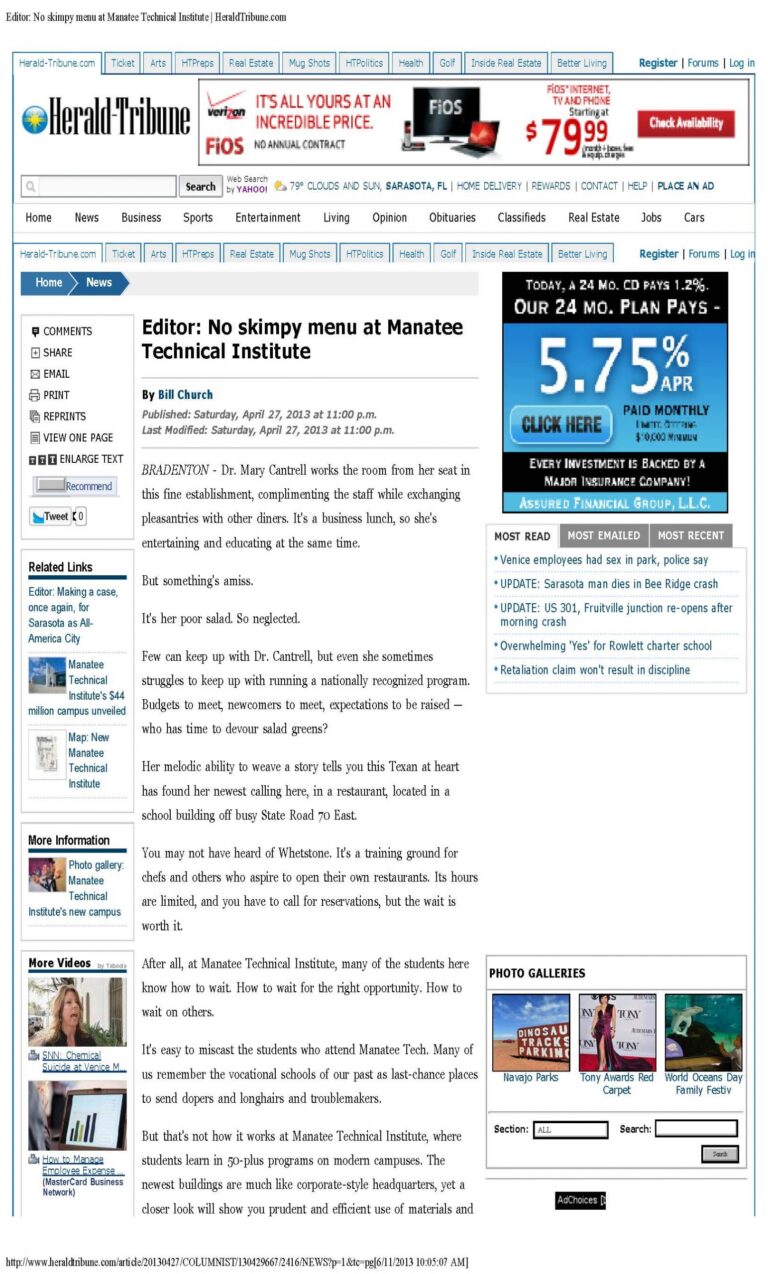Not enough nurses, but limited space in state nursing schools

Amid an unprecedented nursing shortage, students trying to enter the field find few affordable options.
Getting accepted to a community college for a two-year associate’s degree program is not usually considered a monumental academic accomplishment.
But students who land a spot in State College of Florida, Manatee-Sarasota’s nursing school have plenty to brag about. Last year the school received more than 700 applicants for the nursing program but could accept only 160, an acceptance rate similar to top public universities such as Georgia Tech or the University of North Carolina.
It’s a trend mirrored in public community colleges across the state. The Department of Economic Opportunity is projecting more than 14,000 job openings for registered nurses this year, but the state college system can accept only a fraction of students hoping to enter the field.
It’s a problem students who want to be nurses are acutely aware of.
Lindsey Titen, a 33-year old student in Manatee Technical College’s Practical Nursing program, is set to earn her LPN in May, but she is already worried about the next step — getting her RN, which requires at least an associate’s degree and is where the money and jobs are.
She, along with most of her classmates, will be vying for a spot at SCF. If she doesn’t get in, she can apply to public programs in Pinellas or Hillsborough, but those are similarly competitive. There are plenty of private nursing schools, but they are more expensive, and many have dismal success rates.
“We are ready to take the next step, and it’s like, where are you going to go?” Titen said on a recent break from classes at MTC’s East Campus. “You are either going to pay a lot and go into extreme debt or you have to hope that you are one of the few that make it that next round. It stinks, especially when you are motivated.”
An unprecedented shortage
Registered nurses are projected to be the most in-demand occupation in Florida for the eighth year in a row, according to data from the state’s Department of Economic Opportunity, and nearly half of the existing workforce will be retiring in the next decade.
In addition to limited spots in RN programs, the industry is placing increased weight on nurses having four-year degrees. The Institute of Medicine released a report in 2010 calling for 80 percent of the nursing workforce to have bachelor’s degrees by 2020 — a dramatic increase for a field long dominated by two-year degrees. Researchers link higher education to better performance, but that also means more schooling, more cost, more competition.
Freshman House Rep. Will Robinson, R-Bradenton, campaigned largely on a platform of workforce development, and he has made the lack of access to nursing schools one of his initial priorities as a lawmaker. He didn’t contest the need for highly educated nurses, but he said policymakers need to come up with creative solutions.
“The demand far exceeds the capacity,” Robinson said. ”… There are so many good folks out there that can’t get into nursing school. They are highly qualified and they would make outstanding nurses.”
Mixed results from privatization
In 2009 lawmakers relaxed the Board of Nursing’s authority so more private nursing schools could open, hoping more private schools would get more nurses into the field.
The experiment has had mixed results. Since then, the number of nursing programs in the state has more than doubled, with 94% of programs that applied getting the green light to open from the Board of Nursing, according to the Florida Center for Nursing’s 2018 annual report. But Florida has the lowest pass rate on the national nursing exam of all 50 states plus the District of Columbia, meaning Florida’s nursing schools, particularly the private schools, are struggling to prepare the students they do have.
However, many of the private schools have not. Statewide, the passage rate for students who attend private schools on the RN exam was 51%, compared to an 89% pass rate for the public schools, according to a Florida Center for Nursing report.
The Suncoast College of Health, a private medical school operating out of a strip mall on 14th Street in southern Manatee County, was one of the private schools driving down the average before its owner suspended the RN program. The school changed names several times, according to articles of incorporation filed with the state. First it was the Quality Healthcare Training Academy, then it was the Southwest Florida Technical Institute, and since 2015 it has been the Suncoast College of Health.
Despite all the name changes, one thing remained the same: Very few of the school’s graduates could pass the nursing exam.
Last year, only 21 of 115 students (18%) in the RN course passed the test on their first try. In the years before that, pass rates hovered between 25% and 45%, while the state average for public nursing schools remained in the high 80?s. At SCF, 93 out of 94 students passed in 2017.
Suncoast owner Lori Barnes said tuition at the school was $12,000 and the school does not provide financial aid. She attributed the poor test results to the school not having an entrance exam and a disorganized curriculum. She said she accepts students that wouldn’t get into schools like SCF, and that she spent too much time trying to help them with their personal lives and should have focused more on the academics.
“When I saw the numbers weren’t really coming up I closed the program down on my own,” Barnes said. “I closed the RN program down. They went down really bad.”
Technical Colleges want in
Private schools like Suncoast College of Health can offer associate’s degree courses despite perennial poor results on the nursing exam, but the state’s technical colleges are limited to offering only LPN certifications.
Doug Wagner, the deputy superintendent for operations in the Manatee County School District, said that makes no sense, and he wants the state’s technical colleges to get permission to offer associate’s degree nursing programs.
“I could start the Doug Wagner (private) School of Nursing tomorrow,” Wagner said. “I could get approval from the Board of Nursing — if I’m a private school. Yet if you are a public school, you are told no, we can’t touch this.”
Robinson filed legislation in January that would allow technical colleges, which are managed by the local school districts, to offer associate’s degree nursing programs.
Robinson’s bill never advanced beyond the Higher Education and Career Readiness Subcommitee, which has stopped convening for this legislative session, but he said the effort isn’t over.
Allowing technical colleges to offer associate’s degrees would address the shortage in the short term, but it would encroach on the turf of the Florida College System. Schools like SCF have partnerships with neighboring universities so students can go directly from earning their associate’s degree into a bachelor’s program. Allowing the state’s 49 technical colleges, which don’t have such established partnerships, to offer associate’s degrees could flood the market with nurses not having the credentials that may be standard in the coming years, SCF President Carol Probstfeld said.
“Why would we create two public systems that are creating RNs?” she said.
SCF Manatee-Sarasota has requested $2.15 million in recurring funding to hire additional staff and increase enrollment in their associate’s RN program from 160 to 220.
“The solution is to fund the Florida College system,” Probstfeld said.
The Florida College System, which is composed of 28 community colleges mostly offering two-year degrees, was reigned in by lawmakers and universities when the colleges began offering bachelor’s degrees. College leaders would like to see the same standard applied now, as the technical colleges are eyeing their territory.
But Wagner said students need more options.
“If there were no vacancies, I’d say, ‘OK, that makes sense,’” Wagner said. “But if you are looking at statewide, that argument should be thrown out the window. That’s antiquated thinking.”






